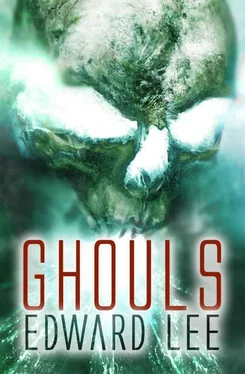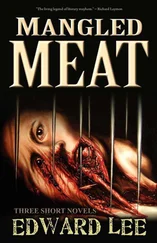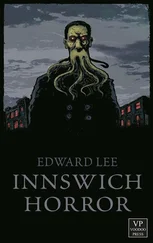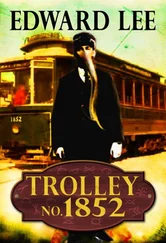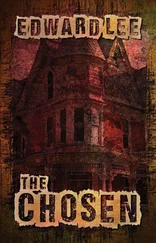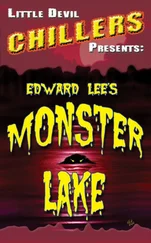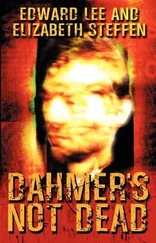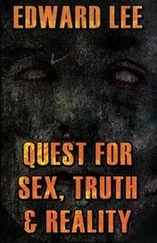Had the dream meant something? Perhaps his subconscious was trying to drive something home, rub his face in an idea. It wasn’t hard to figure. Some believed that dreams functioned thematically—people, objects, and events were really symbols that served to relate something abstract and psychological. In that case, then, some hidden part of himself felt responsible for Swaggert and the Fitzwaters.
Others believed in dreams as vehicles of portent, each a train of images which forewarned the dreamer of impending danger.
Nonsense.
The cigarette tasted rancid, compounding for him the all-too-familiar acridity of smoker’s sleep. He stubbed it out and moments later lit another without being aware of it.
As the promise of further sleep became more and more a lie, he remembered what had happened at Squidd McGuffy’s earlier that evening. Glen’s behavior there had been explicitly odd, but then Kurt had to admit noticing a certain oddness about Glen lately. Nancy Willard, of course, was the girl Glen had meant—and refused to identify—in their conversation at McGuffy’s. And, of course, he hadn’t revealed to Kurt what Nancy had said, just that it was “Something crazy.” “Something impossible.” After that, Glen had withdrawn into a blank-faced haze. Perhaps it had been the alcohol—Glen had tossed back quite a few—but Kurt sensed a more complicated root. All he knew was that something had Glen worried nearly to the point of panic, and that suddenly he wished not to speak of it. Instead, Glen had finished his beer and had left, muttering the intention to go home, pass out, and start all over again tomorrow.
Kurt had waited at McGuffy’s another hour. Nancy Willard had never shown up.
He sat down and jumped back up again when he heard tapping at the door. It was going on 4:00 a.m. The door creaked open a few inches; Vicky peered in with apprehensive eyes.
“I saw your door opened a crack,” she said, “and the light on.”
Kurt sat back down, relieved. “Come on in. I need the company.”
“I couldn’t sleep,” she said, coming in. She wore a shiny lavender-tinted slipgown with a flowered pocket on the hip. “I kept having these really scary dreams, you know. The kind that make you afraid to try and go back to sleep.”
“Well, don’t feel bad,” Kurt said. “Nightmares seem to be contagious around here these days. The one I just had would make a great script for Tales from the Crypt.”
She looked down at the floor, as if sorry for something. “I dreamed that something bad happened to Lenny,” she said, fiddling with the fringe of her pocket. “At least I think it was Lenny, because Joanne was in the dream, too, and…”
“Forget about it,” Kurt cut in. He didn’t like to see her distressed; she’d had more than her share in her life. “It’s a load of crap—all this stuff about how dreams reflect our inner selves. Christ, I’d be on a nut ward if that were true.”
“I guess I just feel bad about what happened to our marriage. Sometimes I think it’s my fault, that things went the way they did because I was a crummy wife.”
“Horseshit,” Kurt said. “You’re a thousand times the wife he ever deserved, the shit—” but he cut himself off. He was meddling again.
“Oh, Kurt,” she said in a frivolous, sing-songy voice, “you’re always so supportive. Maybe I should’ve married you.”
“Well I sure as hell didn’t twist your arm to marry Lenny.”
The bite of his response seemed to amuse her. Was she playing with him? Did she know how badly he felt for her? Perhaps not; women were often stupid that way. Or perhaps she just didn’t care.
She wandered to the window, disheveled in her nightgown, groggy and kicked out of sleep by dreams as he had been. He felt magnetized by her; he always had. Her prettiness poured over him like fluid. Her hair was disarranged, her nightgown crooked and creased, but she was even pretty when she was a mess. He smiled to himself, wishing he could kiss her, and wondering what she might do if he did.
Quite abruptly, she opened the window and stuck her head out. Kurt sank in his seat, still haunted by the undertow of his dream—he wanted to push her away. Had she seen something? Shut up, he shouted at himself. Don’t be an ass. But he couldn’t help asking, “It’s not foggy out by any chance, is it?”
“No, it’s beautiful. Crystal clear and so still. You can see every single star.”
Her voice sailed away in a fading echo. Suddenly dimensions seemed to extend, the room stretching a hundred feet long, and she was tiny at the end of it. He imagined himself walking the entire length of the room, summoned by a foreign yet curiously unsurprising impulse. She would turn, sensing his approach, a soft and knowing smile on her lips. Their eyes would meet, and they would embrace in desperate happiness. His fingers would slide through her hair and down her shoulders, connecting her to him by touch. They would be carried through an interstice of timeless avowal, where feelings transcended words, and love reduced all the flaws of the world to grains of sand. / love you, he would think. “Yes,” she would say back, and they would kiss, and it would be perfect. Everything would be perfect.
“Those people are all dead, aren’t they?”
“What?” he said. The muse fell to bits, a seductive lie. Nothing was perfect.
She had turned and was facing him now. The lamplight reached out wanly, barely surfacing her from the shadows. “Doug Swaggert, that man and his daughter who lived in the trailer, those two high school girls. Are they dead?”
“Probably.”
“Murdered, in other words.”
His nod was grim, pauseless.
Silence unfurled around them, like smoke. Something solemn seemed to descend on her; the empty incomprehension of innocence filled her eyes. “When do you think the killers will be caught?”
“Maybe tomorrow, maybe next week. Maybe never. So far there’s no traceable evidence. There’s nothing we can use to maintain an investigation. All we can hope for is some luck, at least for the time being.”
“The time being? You mean until someone else gets killed.”
Kurt didn’t comment. Her words hissed cynicism, even ridicule. Was she accusing the police of inaction? Was she blaming him? No, she just didn’t understand. “Bard thinks that Glen has something to do with it,” he said.
“Glen? For God’s sake, why?”
“Every time something’s happened, he’s been around.”
“Not those two girls,” Vicky countered. “It said in the paper that their car was found in Bowie.”
“Sure, but what you’re forgetting is that Bowie is right alongside us; actually, the car was discovered less than a mile from where Glen was working that same night. And to make matters worse, he says he caught two girls in a silver sedan trespassing on Belleau Wood a couple of nights earlier. He ran them off and logged their tag number—”
“And the tags were the same?”
“Right down to the last digit. Which means that Glen came in direct contact with the missing girls just a few nights before they disappeared.”
She came forward, the angles of her face sharp from negation. “So you suspect Glen, too?”
“No, no,” he said. “Relax.” In fact, he felt good that someone else agreed with his certainty of Glen’s innocence. He yawned and went on. “Chief Bard was born with a pair of blinders on his face. No offense to the man, now, but he seems to be a little bit wrong about everything. He’s on the right track, just barking up the wrong tree. He’s got Glen pegged as the constant, but there’s one other thing that all the disappearances have in common.”
“What’s that?”
Читать дальше
